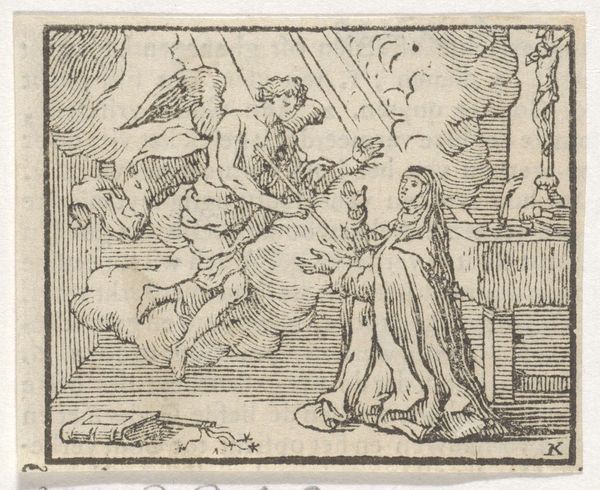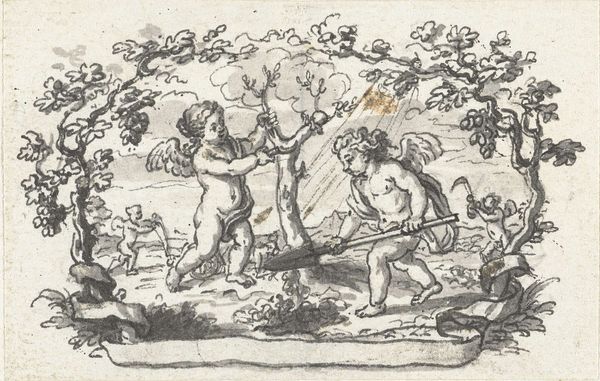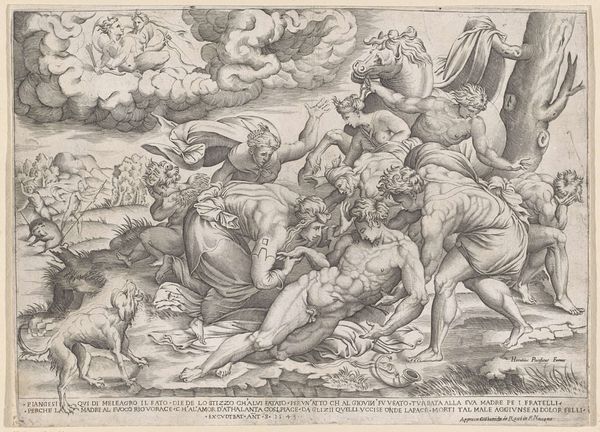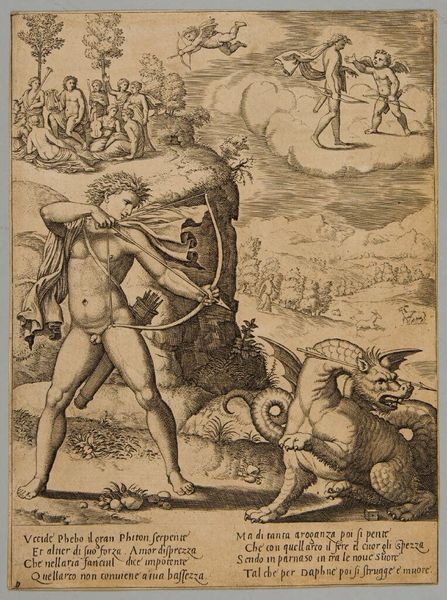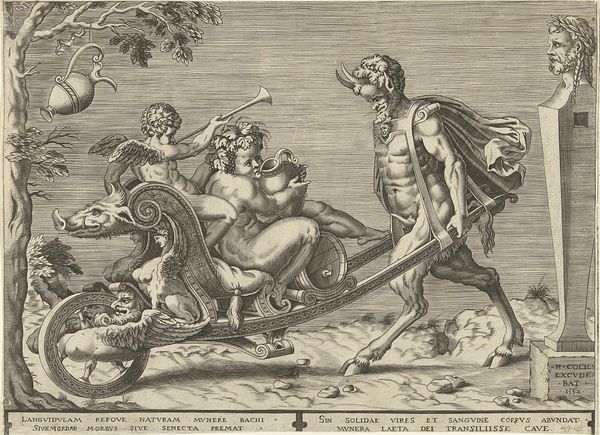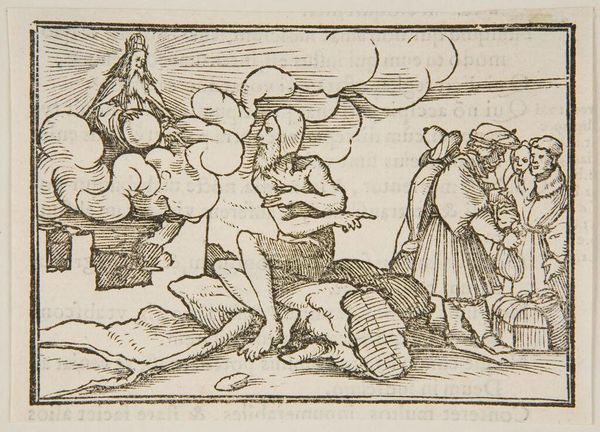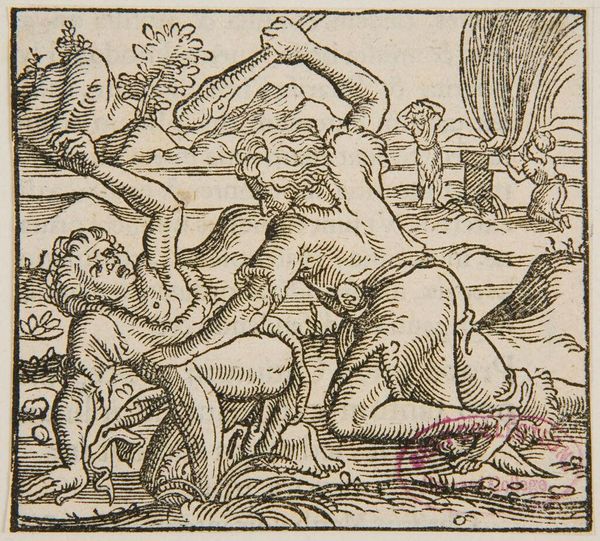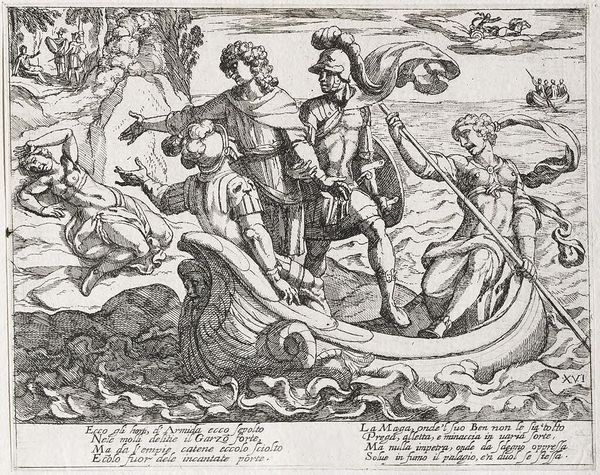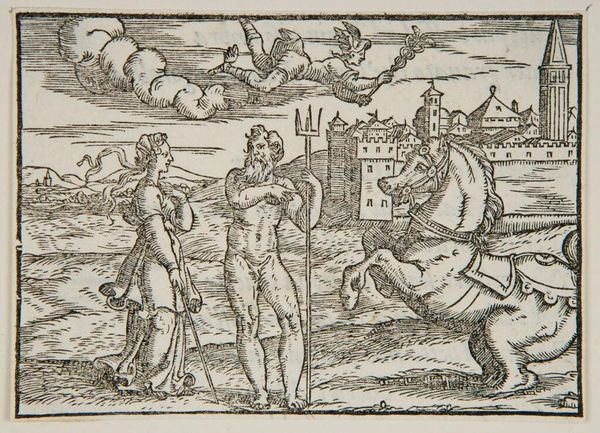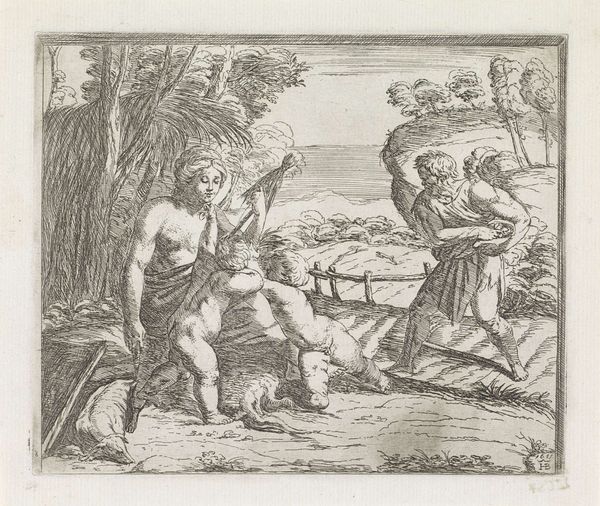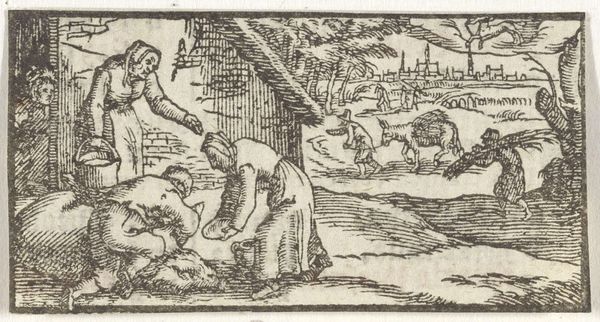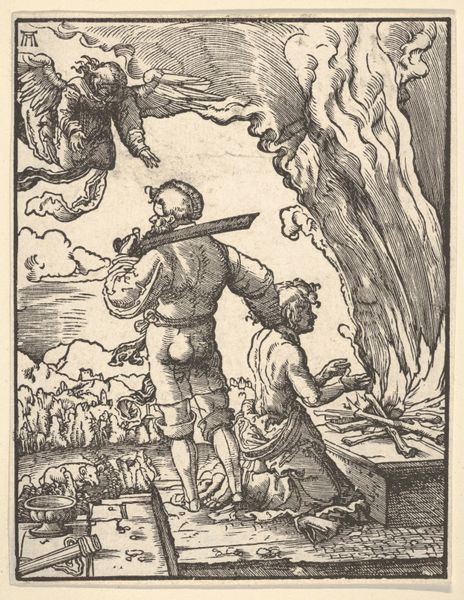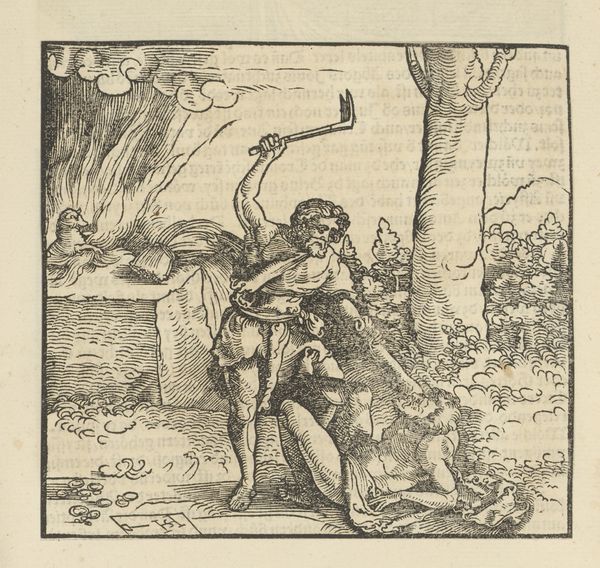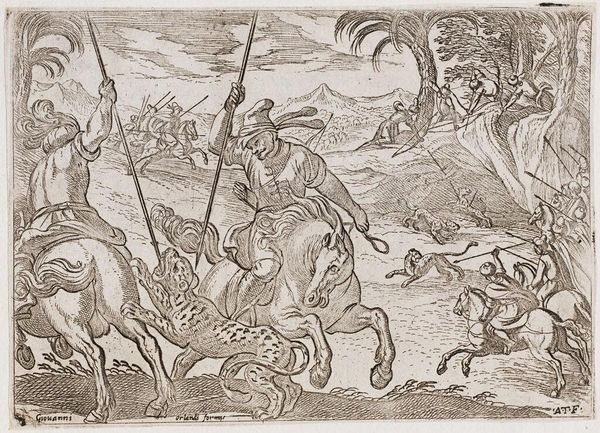
print, engraving
#
narrative-art
# print
#
pen illustration
#
figuration
#
pen work
#
sketchbook drawing
#
history-painting
#
northern-renaissance
#
engraving
Dimensions: height 60 mm, width 85 mm, height 84 mm, width 97 mm
Copyright: Rijks Museum: Open Domain
Curator: Here we have Hans Holbein the Younger's 1538 engraving, "God Speaking to Job from a Storm." Editor: Oof, intense! Immediately, I'm hit by the sheer weight of that stormy sky, pressing down. It's as if the engraver carved the anxiety right into the metal. The swirling clouds are practically alive. Curator: They certainly lend to the drama, don't they? Note how God is positioned in the upper left-hand corner, dominating the composition while Job, in a very vulnerable posture, sits amongst the remnants of his previous life. The figures on the right almost appear oblivious to the theophany in its enormity, like passersby on their way elsewhere, preoccupied with more familiar problems. Editor: I see echoes of older iconographies, of course – God with his hand on the orb, signifying dominion – but Holbein has infused it with a visceral immediacy. It makes you wonder about what the artist was going through when he produced it, the feeling of despair as it gets transferred into lines. What must have that felt like? Curator: It really showcases the anxieties present in Holbein's era, specifically how the divine intersects the everyday struggles. This isn’t a remote deity; God is intervening—rather invasively I would venture to say— in the mortal realm. Think of the turbulent Reformation; people really grappled with what faith meant for daily life. Editor: The chaos, that loss of control and familiar perspective. Also, isn't it interesting how everyone comes bearing some burden or other – either an earthly one such as purses, or their psychological baggage? Meanwhile, Job seems as though he is left with very little. The way in which his emaciated figure has been rendered in the midst of such bounty certainly says something profound. Curator: It seems no accident Holbein created this around the time he accepted a commission in England, one imagines these ideas of fate, devastation and reinvention surely resonated on a personal level as he looked back upon his Swiss-German roots. Editor: Absolutely, you know, after this chat, I sense the power in this image even more, perhaps as a mirror. Loss is the foundation for something altogether novel and perhaps this sense of transformation holds some universal value.
Comments
No comments
Be the first to comment and join the conversation on the ultimate creative platform.
